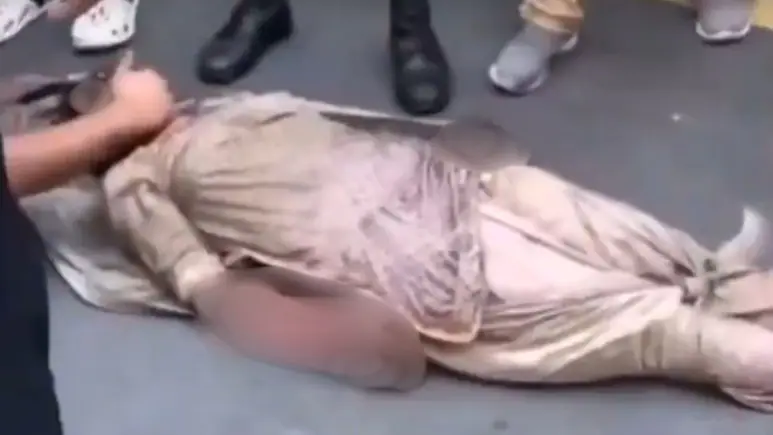Violent anti-government protests in Nepal intensified this week, leading to widespread destruction, the resignation of top political figures, and the tragic death of a former prime minister’s wife. Sparked by a now-lifted ban on social media, the protests—largely led by Gen Z demonstrators—have turned into a sweeping movement against corruption and political privilege in the country.
Ex-PM’s Wife Dies After Home Torched
Rajyalaxmi Chitrakar, the wife of former Nepal Prime Minister Jhalanath Khanal, died on Tuesday after being severely injured in a fire allegedly started by protesters at their home in Dallu, Kathmandu. She was rushed to Kirtipur Burn Hospital, but succumbed to her injuries during treatment, family sources told local media.
According to initial reports, a group of protestors surrounded the residence and set it ablaze, trapping Ms. Chitrakar inside. Authorities have yet to issue a formal statement, but the incident marks a grim escalation in what is now being called one of Nepal’s most intense uprisings in recent memory.
Former Leaders Attacked, PM Resigns
In another shocking incident, demonstrators attacked former Prime Minister Sher Bahadur Deuba and his wife Arzu Rana Deuba at their residence. Videos shared on social media showed Deuba bleeding excessively, while his wife also appeared injured. Their house was among several political residences that were set on fire amid the unrest.
The situation deteriorated so rapidly that Prime Minister KP Sharma Oli resigned on Tuesday. Protesters had earlier torched his private home in Bhaktapur, with viral footage showing demonstrators dancing in celebration as flames engulfed the property. “I am stepping down immediately,” Oli said, following calls for accountability over the violence and the controversial social media ban.
Multiple Residences and Government Buildings Set Ablaze
The demonstrations also targeted the homes of other high-profile figures, including President Ram Chandra Poudel, former PM Pushpa Kamal Dahal ‘Prachanda’, Energy Minister Deepak Khadka, and former Home Minister Ramesh Lekhak. Protesters breached and set fire to Nepal’s Parliament building, symbolising the depth of public anger.
Several other key structures, such as police stations and party offices, were also torched. The residence of Communication Minister Prithvi Subba Gurung in Lalitpur was burned, while stones were hurled at Deputy PM and Finance Minister Bishnu Prasad Paudel’s house in Bhaisepati. Protesters also attacked the home of Nepal Rastra Bank Governor Biswo Paudel.
According to The Kathmandu Post, demonstrators even reached Sher Bahadur Deuba’s Budhanilkantha residence, but security forces managed to prevent further destruction.
Violence Erupts Following Deadly Police Crackdown
The situation spiraled after at least 19 young protesters were killed during confrontations with security forces on Monday. Police opened fire on crowds in Kathmandu, sparking national outrage. The following day, unrest surged across the country, with demonstrators intensifying their assault on government targets.
To regain control, authorities imposed curfews in Kathmandu Valley and other districts. Army helicopters were used to evacuate ministers from high-risk areas, and Tribhuvan International Airport in the capital was temporarily shut down amid safety concerns.
Trigger: Social Media Ban and Allegations of Corruption
The protests initially erupted after the government imposed a ban on major social media platforms, including Facebook, YouTube, and X (formerly Twitter), claiming the platforms had failed to register with Nepali authorities. Though the ban was lifted on Tuesday, anger had already boiled over into wider dissatisfaction with Nepal’s political leadership.
The movement, now known as the Gen Z Protest, quickly evolved into a nationwide outcry against corruption, nepotism, and the elite’s misuse of public resources. Many of the demonstrators expressed frustration over the growing wealth gap, poor governance, and lack of accountability in the country’s democratic institutions.
Finance Minister Attacked in the Streets
In a particularly disturbing incident captured on video, Finance Minister Bishnu Paudel was chased, kicked, and beaten by protesters as he attempted to flee on foot. The video circulated widely online, reinforcing the volatile nature of the current political climate.
With national leadership crumbling under pressure and multiple resignations, including that of President Ram Chandra Poudel, Nepal faces a critical turning point. Political analysts say the current protests represent more than just a youth uprising—it is a generational reckoning with decades of entrenched political dysfunction.


